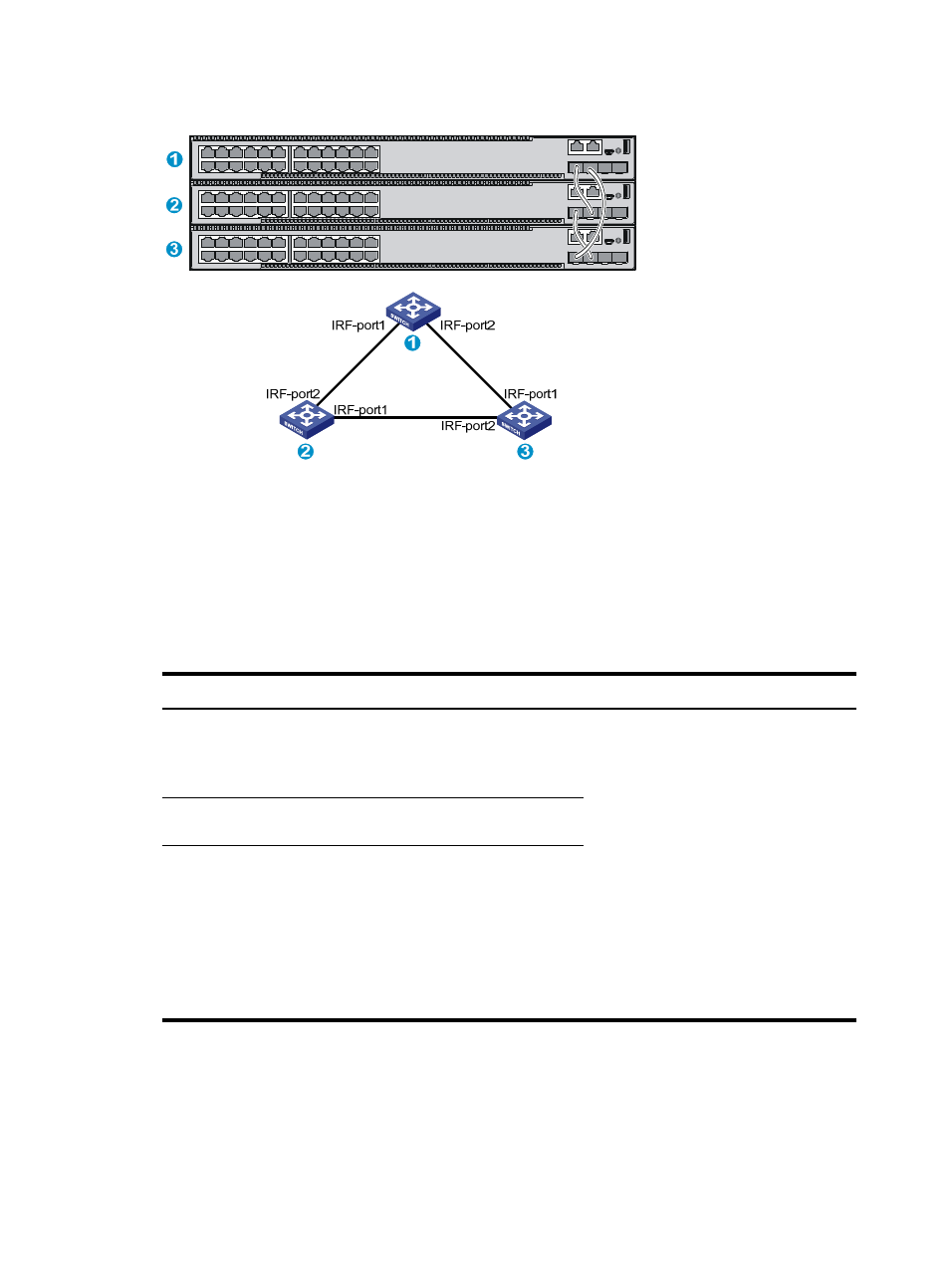Planning the cabling scheme, Connecting the usb mini console cable – H3C Technologies H3C S5560 Series Switches User Manual
Page 53

44
Figure 54 IRF fabric in ring topology
Identifying physical IRF ports on the member switches
Identify the physical IRF ports on the member switches according to your topology and connection
scheme.
shows the physical ports that can be used for IRF connection and the port use restrictions.
Table 7 Physical IRF port requirements
Chassis
Candidate physical IRF ports
Requirements
•
S5560-30S-EI
•
S5560-54S-EI
•
Four fixed SFP+ ports on the front
panel
•
Two fixed QSFP+ ports on the rear
panel
•
All physical ports to be bound to an
IRF port must be the same type.
•
For the S5560-54QS-EI, SFP+ ports
49 to 52 form a group. When an SFP+
port is bound to an IRF port, other
SFP+ ports in the same port group
cannot be used as service ports, and
vice versa. Each QSFP+ port is a
group.
•
For other models, physical ports on
different interface cards can be bound
to the same IRF port.
•
If a QSFP+ port is split into four SFP+
ports, the QSFP+ port cannot be used
as a physical IRF port.
S5560-54QS-EI
Four fixed SFP+ ports and two fixed
QSFP+ ports on the front panel
•
S5560-30F-EI
•
S5560-30C-EI
•
S5560-54C-EI
•
S5560-30C-PWR
-EI
•
S5560-54C-PWR
-EI
•
Four fixed SFP+ ports on the front
panel
•
Ports on the expansion interface card
on the rear panel
Planning the cabling scheme
Use SFP+/QSFP+ DAC cables or SFP+/QSFP+ transceiver modules and fibers to connect the IRF
member switches. If the IRF member switches are far away from one another, choose the SFP+/QSFP+
transceiver modules with optical fibers. If the IRF member switches are all in one equipment room, choose
